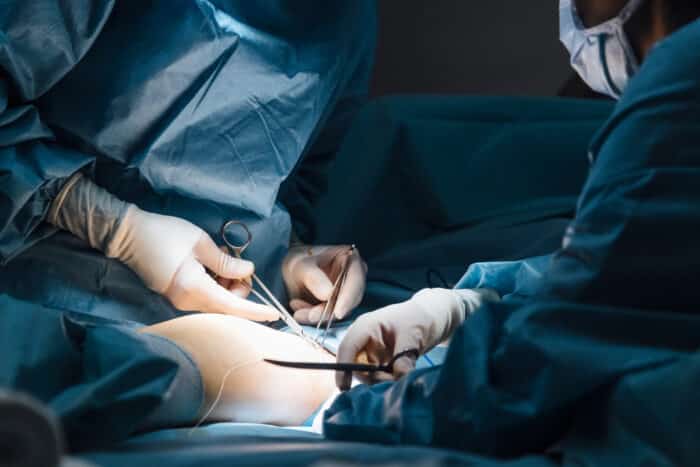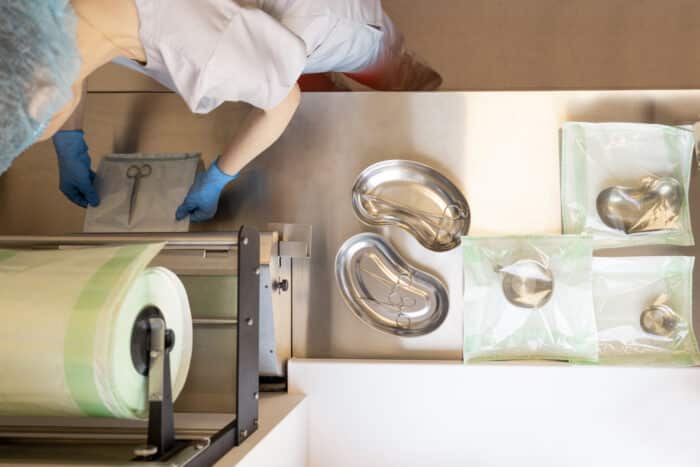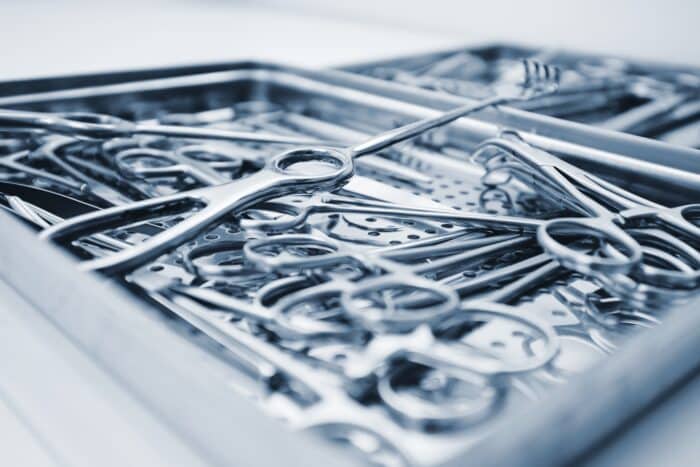Are you an aspiring sterile processing technician or are you looking to switch your career to sterile processing?
If yes, you might have wondered what an employer looks for while hiring phlebotomists. This can form the basis for deciding to step into this rewarding career.
Or if you’re interested to know more about sterile processing as a career, you might want to know what the roles and responsibilities a certified phlebotomist handles in their workplace.
Let us help you with all these doubts.
In this article, we will also uncover the requirements to become a sterile processing technician, what the employer looks for while hiring candidates, and more.
So, let’s dive in, shall we?
What Does a Job Template for a Sterile Processing Tech Look Like?
A job description for a sterile processing technician serves as a blueprint for a job opening, outlining the duties, qualifications, and expectations an employer looks for in potential hires.
Also see: What is a Sterile Processing Technician
Here’s an example of a job posting for a sterile processing technician role:
What Do Employers Look For While Hiring Sterile Processing Techs?
If you’re interested in pursuing a career in sterile processing, the above-mentioned question might have crossed your mind a few times.
And we’re here to provide you with a detailed insight into it.
Let’s take a look at the top skills/things employers look for in potential candidates:
- Certification and Education: Many employers prefer candidates who have completed formal training programs in sterile processing or have certifications from recognized organizations like IAHCSMM or CBSPD. These certifications demonstrate a foundational level of knowledge and competence.
- Attention to Detail: Given the nature of sterilizing medical equipment, employers value individuals who are thorough and detail-oriented. The ability to follow precise protocols and maintain accuracy is essential to prevent contamination.
- Adherence to Safety Standards: Understanding and following safety protocols is essential. Employers look for candidates who prioritize safety measures to minimize risks of infection and ensure a sterile environment.
- Team Player: Sterile processing technicians work in collaboration with various healthcare professionals. Employers seek candidates who can work effectively within a team, communicate well, and coordinate tasks efficiently.
- Adaptability and Problem-Solving Skills: The healthcare environment can be fast-paced and dynamic. Employers appreciate candidates who can adapt quickly to changes and troubleshoot potential issues in equipment sterilization processes.
- Experience: While not always mandatory, prior experience in sterile processing or related healthcare fields can be beneficial. It demonstrates practical knowledge and familiarity with the duties involved.
See: Sterile Processing Technician Certificate Program Online
Duties of a Sterile Processing Technician
Sterile processing technicians are like the backbone of the healthcare industry, ensuring the smooth functioning of healthcare facilities, as their role revolves around safeguarding patient safety by ensuring that all equipment is properly sterilized and ready for medical procedures.
Their duties typically include:
1. Sterilization Processes:
They clean, disinfect, and sterilize medical instruments and equipment using various methods such as autoclaving, chemical disinfection, and ultrasonic cleaners. They follow strict protocols to ensure that items are free from pathogens and safe for patient use.
2. Equipment Operation:
Operating and maintaining sterilization equipment and machinery is a key responsibility. They need to understand how different machines work and ensure they’re functioning properly to maintain the integrity of the sterilization process.
3. Inventory Management:
Keeping track of inventory, including monitoring supplies, ordering necessary materials, and ensuring that sterile items are readily available for medical procedures is part of their role. This involves organizing and restocking supplies on time.
Read: Sterile Processing Technician Certification
4. Quality Control:
Conducting quality checks and tests to guarantee that sterilization processes meet industry standards and regulations. They perform routine checks to ensure equipment functions effectively and that sterilization meets the required parameters.
5. Documentation and Record-Keeping:
Maintaining accurate records of sterilization processes, including tracking sterilization cycles, equipment maintenance, and inventory levels. This documentation is essential for compliance and traceability.
6. Communication:
Collaborating with other healthcare professionals, such as nurses and surgeons, to ensure that they have the necessary sterile instruments and equipment for procedures. Effective communication is very important in fulfilling requests and addressing concerns.
7. Adherence to Safety Protocols:
Strictly following safety protocols and guidelines to minimize the risk of infections and maintain a sterile environment. This includes wearing appropriate protective gear and handling hazardous materials safely.
See: What Does a Sterile Processing Technician Do?
Sterile Processing Technician Requirements
When you think of the process of becoming a sterile processing technician, you might wonder what requirements should you list to get started with the process.
Let us help you with that.
The process of becoming a sterile processing technician might also seem overwhelming, especially with the amount of information available online.
To pursue a career as a sterile processing technician, you’ll need:
- Completion of a sterile processing training program (Diploma, certificate, or online training program).
- Certification from recognized associations like IAHCSMM or CBSPD.
- Demonstrated experience in sterile processing practices.
- Understanding and practice of accurate equipment handling techniques.
- Knowledge of legal regulations concerning sterilization procedures and equipment usage.
- Proficiency in following precise sterilization methods.
- Familiarity with testing procedures and equipment maintenance.
- Excellent hand-eye coordination and dexterity.
- Effective communication skills, both written and verbal.
- A keen attention to detail.
Conclusion
Sterile processing technicians are super important in keeping hospitals clean and safe. They make sure medical tools are super clean by following strict rules. Their careful work keeps patients safe from infections. Becoming a sterile processing tech needs training and precision, but it’s a rewarding job that helps make healthcare better for everyone.
Also read: Certified Sterile Processing Technician
Sterile Processing Technician – FAQs
Can I become a sterile processing technician without experience?
Yes, you can enter the sterile processing field without prior experience. Many entry-level positions offer on-the-job training or consider candidates with a high school diploma. Formal education or certification programs can also prepare you for these roles, even without prior experience, by providing both theoretical knowledge and hands-on training.
How much does a sterile processing technician earn?
According to the U.S. Bureau of Labor Statistics (BLS), the mean annual income of a sterile processing technician is $44,940, or $21.61 per hour.
It is important to note that these figures are highly dependent on many influencing factors such as job location, experience, and the number of certifications.
Related Resources:
- Travel Sterile Processing Technician
- How to Become a Sterile Processing Technician
- Sterile Processing Technician Salary
- Sterile Processing Technician Requirements
- Sterile Processing Technician Resume
- Sterile Processing Technician Training
- Sterile Processing Technician Certificate Program
- How Long Does it Take to Become a Sterile Processing Technician
- Sterile Processing Technician Exam
- CRCST Certification
Related Articles
-
How to Be Successful in College in 2022 – 7 Simple Tips to Succeed
-
How Do Scholarships Work? Read This First…Truth is Shocking
-
7 Best College Majors 2024: What Should I Major In?
-
How to Choose a College – 10 Things You Must Consider in 2024
-
Why Go to College? Top 13 Benefits for Adult Students in 2022
-
Top 5 Best Alternatives to Community College for 2024








